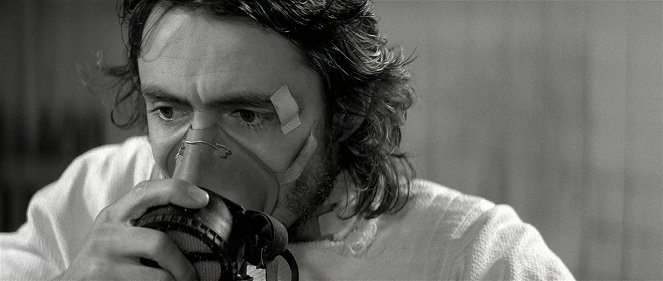Directed by:
Luc BessonScreenplay:
Luc BessonCinematography:
Carlo VariniComposer:
Eric SerraCast:
Pierre Jolivet, Jean Bouise, Fritz Wepper, Jean Reno, Christiane Krüger, Pierre Carrive, Maurice LamyPlots(1)
Post-apocalyptic wasteland movie directed by Luc Besson. With the world in ruins and the people now unable to speak, a young man assembles a small plane and sets off for the city in search of a woman. There he befriends an old doctor who has barricaded himself inside a hospital, and together they fight the aggressions of a group of dangerous outlaws. (StudioCanal UK)
(more)Reviews (2)
I'm surprised at the repetitive need to "get" the film in the reviews here, as if everything that needed to be shown wasn't. I think, for example, the fish and debris falling from the sky may be the result of some ongoing monstrous conflict somewhere over the horizon that is throwing acres of land and oceans into the stratosphere with tremendous force, which then rains down on the survivors in the devastated cities. See the sounds of explosions occasionally in the background. The same conflict that possesses such weapons may well possess a weapon capable of rendering people unable to speak. I've played all of Command & Conquer and I like Warhammer 40k, so I have a very open imagination in that regard. Moreover, it doesn't really matter, because just as the film doesn't shower us with establishing shots of the extent of civilization's decimation, yet we only see characters wandering through a labyrinth of crumbling corridors, rooms, and dungeons, we learn nothing about the nature of the conflict behind the story. And, like the characters here, we don't need to, because we know that we can't change anything else about it, only adapt to it, try to maintain some standard of living while remaining human. _____ The cinematography, set design, costumes, and "debut value" here are absolutely fantastic, and Eric Serra's music is... well, yet again, Eric Serra's music. And somehow I'm generally unable to respect his elevator music.
()
To sit through Besson's debut film, no, I wouldn't do it, but I have to admit that from a formal perspective, it is truly something that catches the eye. The absence of spoken words is not only intentional, but it also has its narrative justification. The fact that it is more or less about nothing is another matter. But it is precisely the absence of dialogue that gives you the opportunity to understand the story however you want.
()

